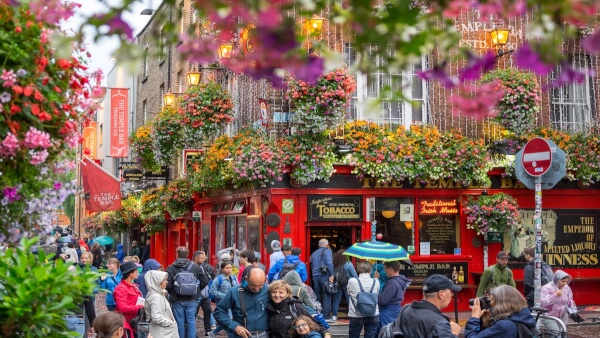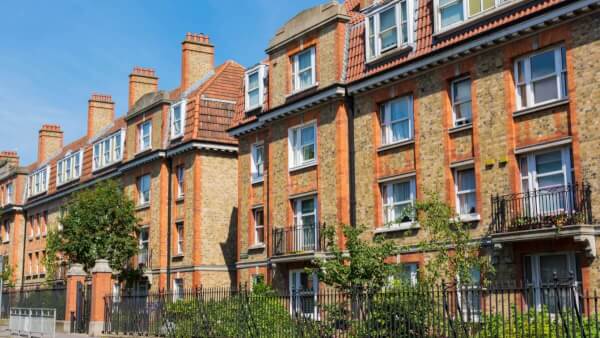How to buy a car in Ireland as a foreigner: US guide
Learn all about buying a car in Ireland as an American, including costs, requirements, and how to import your vehicle back to the US.

Are you ready for a new adventure? Maybe now is the right time for your relocation abroad! With a beautiful green landscape, rich history, and an economy and population on the rise, you might be ready to call the Emerald Isle your new home.
This step-by-step article explains the legal requirements to move to Ireland, plus the details you'll need to get setup. This guide will cover the cost of living, how to find a job, accommodation and how to open a bank account.
Before moving to Ireland, it’s helpful to understand some basic statistics:
The Irish Naturalization and Immigration Service (INIS) provides information regarding entry requirements to Ireland, visas, and all other immigration matters for Ireland. You may not need a visa to enter Ireland, but if you want to stay more than 3 months, you'll likely need to apply for a long stay visa.
Australians don’t need a visa to come to Ireland. However, they'll need permission to stay here for work. They may be asked to provide proof of their finances to show that they can comfortably stay in Ireland, especially when their stay will exceed one or two months.
Ireland is a part of the EU. All EU citizens are entitled to come to Ireland to take up employment or self-employment; they don’t need a visa.
Americans don’t need a visa just to visit Ireland. However, Americans do need to apply for a visa for long-term stays and work. Americans hoping to stay in Ireland long-term will need to apply for permission to remain. This is granted by the Department of Justice and Equality, and approved applicants will receive a stamp of endorsement on their passport.
Ireland and the United Kingdom share a Common Travel Area. This means British citizens can travel to Ireland for any reason and stay for any length of time.
If you're a student you may not need a visa. However, you'll need permission from your course to stay in Ireland to study.
If you're a citizen of any country on this list, you can find detailed information about making an application to obtain your entry visa.
Here are some prices of everyday items in Ireland:
| Good or service in Ireland | Approximate Cost |
|---|---|
| 1 bed apartment, central Dublin | €1,400 |
| 1 bed apartment, Cork Co. (outside of city) | €550 |
| 3 bed house, central Dublin | €2,100 |
| 3 bed house, Cork Co. (outside of city) | €1,200 |
| City centre bus fare | €2.75 |
| Petrol/gasoline (per litre) | €1.36 |
| Cinema ticket | €8.00 |
| Coffee from a shop | €3.00 |
| Fast food burger | €6.00 |
| Pint of beer | €5.00 |
| Litre of milk | €1.05 |
In order to open up a bank account in Ireland you must be at least 18 years old. You’ll need to provide a valid form of photo ID and a proof of address. You can open a bank account in Ireland whether you’re a resident or a non-resident. If you’re a non-resident, you may not have a proof of address in Ireland but some banks will allow you to use information from your home country. Check with the specific bank for more details.
Ireland’s currency is the Euro (€). If you need to send money back home in your home currency, the fees and surcharges will add up over time. Consider Wise’s Borderless account, which allows you to send, receive and organise your money internationally without the high fees and exchange rates that big banks charge. Wise sends money with transparent fees and at the real exchange rate - the same as you’ll find on Google.
Non-EU/EEA nationals who wish to work in Ireland must have a permit issued by the Department of Jobs, Enterprise and Innovation. Visit their website for more information on which visa is right for you and how to apply.
Certain people may not require a work permit, such as refugees or some postgraduate students. Students on a student visa may take up casual work for up to a maximum of 20 hours a week during term time without applying for an employment permit.
Foreign nationals working in Ireland may be required to have their salary paid into a local Irish bank account. You should also contact the Department of Social Protection to apply for your Personal Public Service number before you begin work.
It’s becoming easier for foreigners to find work in Ireland now that the country’s economy has been steadily improving over the past few years. Many of the biggest tech and pharma companies in the world have now have their European HQs in Ireland. Here are a few sites to start looking for English-speaking jobs in Ireland:
Accommodation is plentiful both in and near the main cities. Rental properties can be found furnished or unfurnished. Dublin is Ireland’s capital and largest city with good public transport links, making it a popular destination for people new to the country. Dublin’s rental market can be pricey and competitive so families might prefer areas outside of Dublin, such as Blackrock, Donnybrook, Drumcondra, and Dundrum, or smaller cities like Cork, Limerick, Waterford, or Galway.
Here are some accommodation sites to help you get started:
All residents in Ireland are entitled to free public health cover, however, the two categories (full eligibility for medical card and limited eligibility) are based on your access to means. You can apply directly with the Health Services Executive. Private medical care is available too. If you're a short-term visitor, you may be entitled to some health services. EU/EEA/Swiss nationals can use a European Health Insurance Card (EHIC) to cover most medical care as well.
To have a regular doctor's appointment you’ll go to your general practitioner, or GP. Patients have the right to choose their own GP. Most Irish GPs have both medical card (GMS) and private patients. Private patients are charged a fee, of approximately €25-35 per visit.
Further information on health services and local GPs is available from the HSE Local Health Office website. You should also visit the Irish Citizens Information website for more information on entitlement to public services.
Irish may be the first official language but English is the main spoken language in Ireland. While a quarter of the population understands the Irish language to some extent, less than 2% of the population speaks Irish on a daily basis. These people are mostly on the west coast in remote parts of the country, known as the Gaelthachts. If you want to brush up on some Irish before you relocate, you can use Duolingo for free for just a few minutes a day.
Before you arrive in Ireland, there are plenty of forums, like this ExpatExchange to help you with last minute queries. And with 80,000 immigrants in the country there are plenty of expats to connect with when you finally relocate. Check out this full list of Expat Meetups in Dublin or thisExpats World Dublin Facebook group.
If you’re looking for more cultural immersion opportunities, EIL Intercultural Learning offers a host of learning opportunities, exciting activities, and inspiring workshops.
Travel smart and be prepared. For the fire, ambulance and police services in Ireland dial 112 (only from a mobile) or 999 (from landline or mobile). You can find the details of your local Garda (Police) Station in this Station Directory.
For more information or a little taste of home, here are details of your local Embassy in Dublin:
Ireland provides plenty of opportunities for you to make that relocation you have been dreaming about. Follow this step-by-step guide to help you call this country your new home.
*Please see terms of use and product availability for your region or visit Wise fees and pricing for the most up to date pricing and fee information.
This publication is provided for general information purposes and does not constitute legal, tax or other professional advice from Wise Payments Limited or its subsidiaries and its affiliates, and it is not intended as a substitute for obtaining advice from a financial advisor or any other professional.
We make no representations, warranties or guarantees, whether expressed or implied, that the content in the publication is accurate, complete or up to date.

Learn all about buying a car in Ireland as an American, including costs, requirements, and how to import your vehicle back to the US.

Are you looking for the best property management companies in Dublin? Find out all about the top local providers to take care of your home overseas.

Moving to Ireland from the US? This guide covers all the essential information for relocating to Finland as an American, including tips and insights.

Interested in buying land in Ireland? Here’s everything you need to know about buying a plot of land abroad as an American.

Thinking about moving to Ireland? Find out what you need to know about renting in Ireland in this guide.

Thinking about buying property in Europe? Your best bet might be Ireland. Learn everything about buying property in Ireland right here.